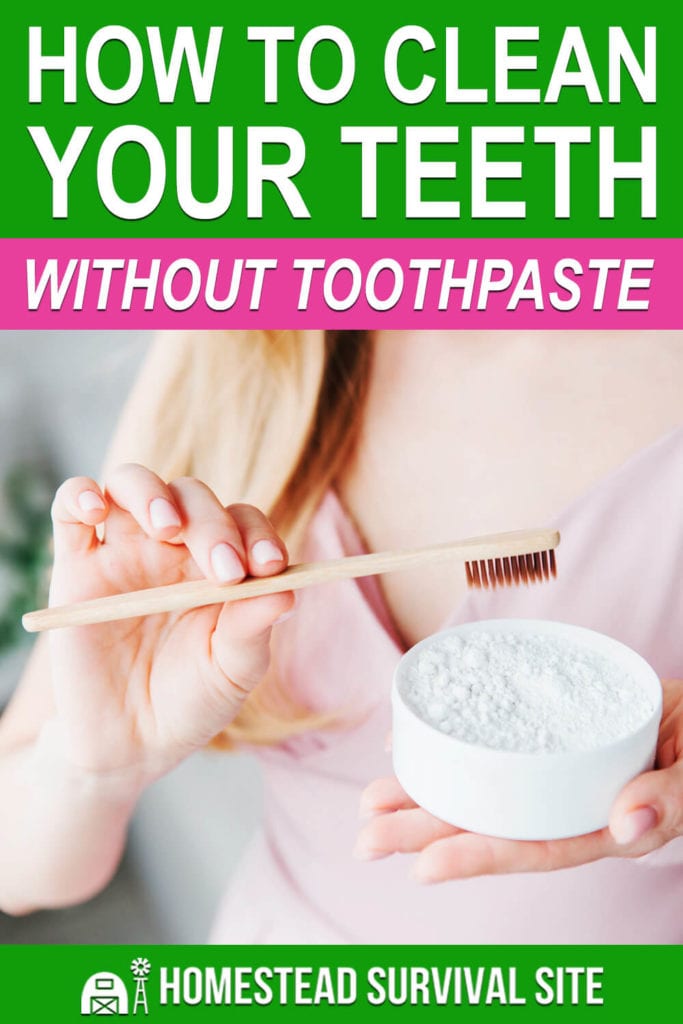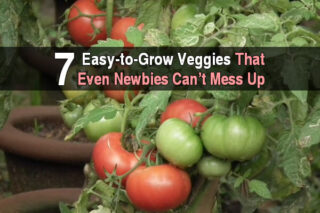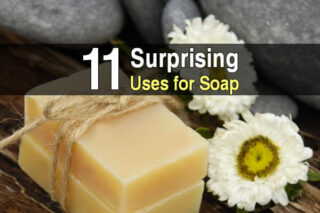Estimated reading time: 6 minutes
Many of us have been brushing our teeth with toothpaste for so long that we don't know how to clean our teeth without it. Modern-day toothpaste has been around since the mid-1800's when it was a powder.
Advances in toothpaste have created the smooth and minty substance that we use today. However, what happens if you forget your toothpaste or simply run out of it?
Here are 11 ways to clean your teeth without toothpaste.
Want to save this post for later? Click Here to Pin It On Pinterest!
1. Activated Charcoal
Many toothpaste companies have added a new product utilizing activated charcoal. While you may have seen the black toothpaste on the shelves, you can also use activated charcoal by itself to help clean your teeth.
The black powder is supposed to help remove stains, and you can make your own mixture by adding activated charcoal to water. However, the charcoal is quite abrasive and can wear down tooth enamel and irritate gums, so it is best to use this technique softly and sparingly.
2. Baking Soda
You may have noticed that many toothpaste tubes contain whitening agents. Baking soda is a natural whitener that can easily substitute as toothpaste.
Simply mix a little bit of baking soda with water to create a paste. Brush it onto your teeth like usual and spit out the paste as you would regular toothpaste. If you don't have a toothbrush, you can always use your finger in a pinch as well.
3. Bentonite Clay
It may seem counterintuitive to brush your teeth with clay or dirt, but some people enjoy using bentonite clay as a toothpaste alternative. There are products available at the store that sell this slightly abrasive clay for toothpaste use.
The clay itself helps break down plaque but shouldn't harm tooth enamel. The clay also raises the pH level inside the mouth, which can help deter bacteria from growing in the future.
4. Cinnamon
As a naturally antimicrobial substance, cinnamon is well known in the tooth care industry. Many kinds of toothpaste include cinnamon both for flavor and for its natural properties.
You can brush your teeth making a cinnamon paste by combining the dry cinnamon powder with warm water. However, cinnamon can cause some staining or patches to appear on teeth if used too much.
5. Coconut Oil
Rinsing your mouth out with oil is an ancient technique known as oil pulling. Using coconut oil is an excellent way to reduce the number of harmful bacteria in the mouth as well as introduce the body to the many benefits of coconut oil overall.
Put a tablespoon of coconut oil into your mouth and swish it around for 10-20 minutes. Yes, it sounds like a long time, but those who have done this on a regular basis say that it works. Moving the oil around in the mouth is supposed to help release the bacteria of the mouth and antimicrobial properties. The fatty acids of coconut oil also seem to help healthwise as well.
6. Herbal Powder
Brushing your teeth using herbal powder is also an alternative to toothpaste. Combine herbs such as clove bud, peppermint, and sage with either water to make a liquid paste or coconut oil to create a firmer paste. Herbs are a great substitute for toothpaste as they are naturally grown and often available when you need something in a pinch.
7. Hydrogen Peroxide
It may be scary to brush your teeth with straight hydrogen peroxide, but you can use it when mixed with other ingredients like baking soda and salt.
Hydrogen peroxide is another natural antiseptic that most of us have in our home or our emergency storage. It helps break down stains and can be an effective way to brush your teeth. It is important to note that you shouldn't use hydrogen peroxide if you have a silver or metal filling and that swallowing the liquid can also be harmful to your stomach.
8. Make Your Own
You can also make your own toothpaste at home using a few homemade ingredients. Most recipes include baking soda, a sweetener, mint extract, coconut oil.
The great thing about making your own toothpaste is that you can choose what goes into the mix and adjust ingredients to your liking. You can store the paste in a mason jar and adjust the paste's thickness to your preference.
9. Natural Soap
Many of us have bad memories of getting soap in our mouth as a punishment, but some say it is okay to use it as a toothpaste replacement. In fact, soap was a regular ingredient in manufactured toothpaste until 1945. If you do choose to use soap, make sure that it is a natural one that doesn't have a taste or extra chemicals.
10. Sea Salt
Brushing your teeth with salt may not sound like a great time, but it does have some health benefits. Sea salt is naturally antibacterial and can help neutralize acids within the mouth.
Combine a half teaspoon of sea salt into warm water to dissolve. Swish your toothbrush around in the mixture and brush as usual. Rinse out your mouth with water afterward to remove the salty aftertaste. Sea salt can be more abrasive, however, so use sparingly to keep gums and tooth enamel intact.
11. Water
While brushing only with water isn't ideal, it can help remove food and particles from your teeth. Wet a toothbrush and brush every side of your teeth to help remove anything left behind from eating and drinking. Again, water isn't the best option, but it is better than nothing.
If you ever run out of toothpaste or want to choose a natural form of cleaning your teeth, consider all of these alternatives. Most of these toothpaste replacements can be made using items you already have in your home.
Remember that washing your mouth out with something as simple as water can help alleviate bacteria growth within the mouth. Try out all of these options to find which one works best for you.
Like this post? Don't Forget to Pin It On Pinterest!










